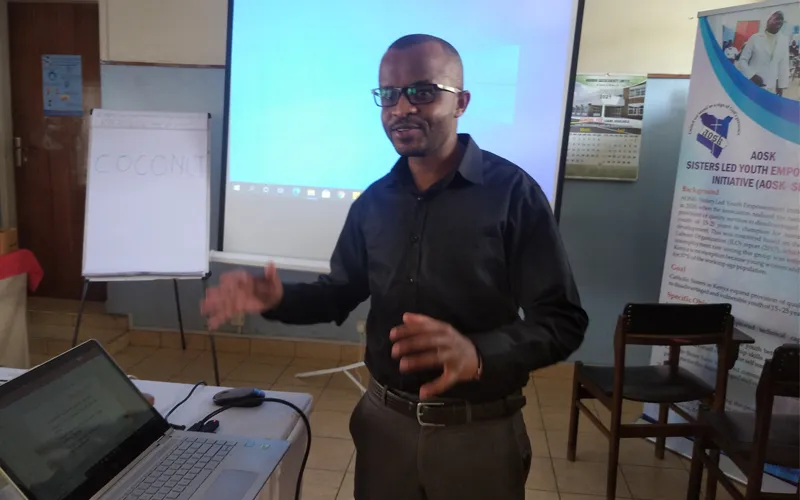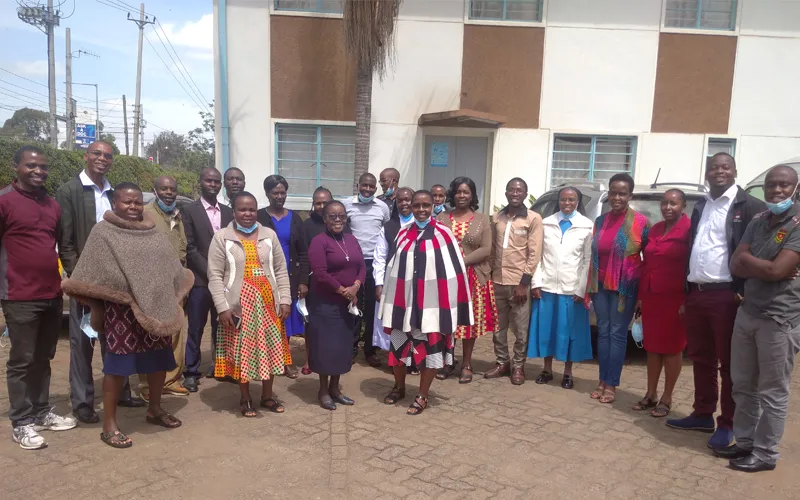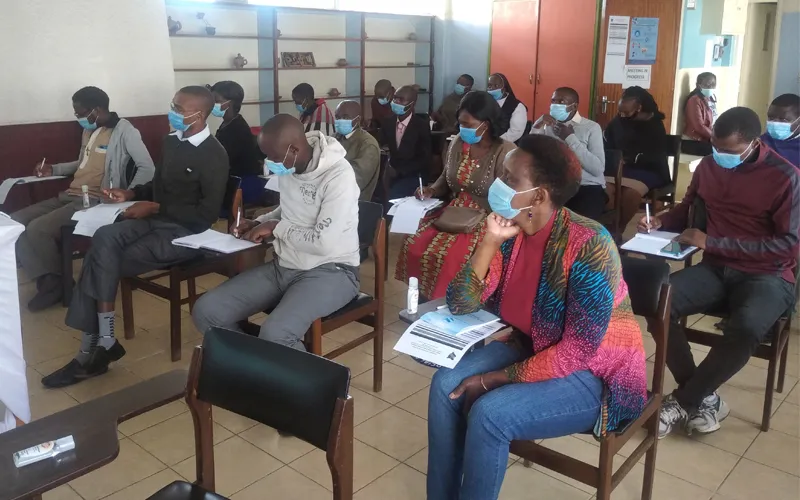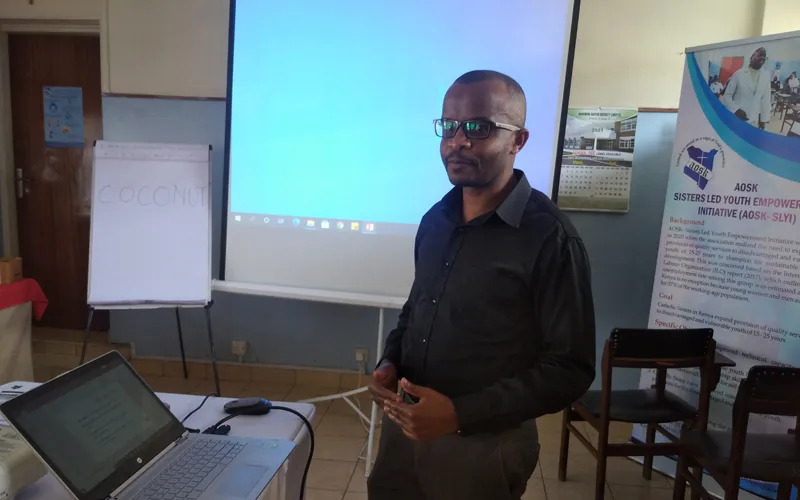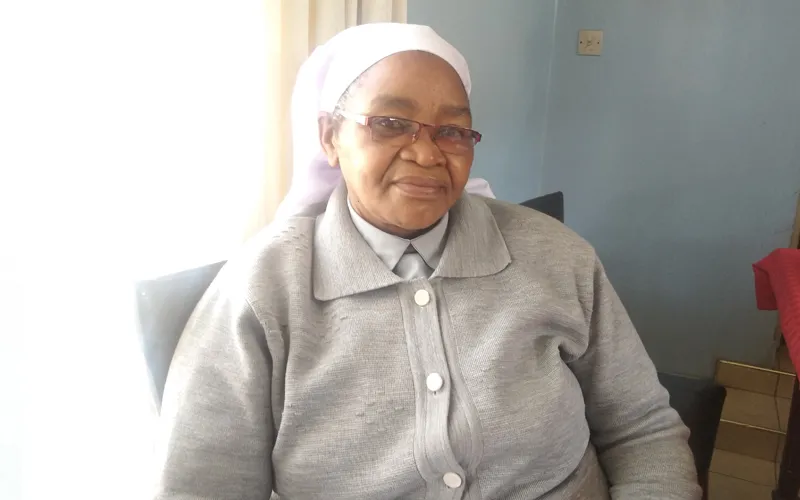
“When COVID-19 struck, people sought safety in their homes but Religious Sisters in the health department were left on the frontline of the fight against the virus without the necessary facilities. Initially, we wrote a proposal to help our Sisters to cope with the pandemic,” Sr. Regina said.
As the days went by, she recalled, “alarming” statistics of teenage pregnancies in various parts of the country came out, exposing the danger that school-going children faced away from school.
Additionally, fathers who stayed all day in the house, having lost their sources of income as the pandemic continued to bite, became hostile and let out their frustrations on their families in what contributed to the high cases of violence.
To address the two challenges, AOSK leadership added the objective of training and mentorship to youth to their initial health plan.
(Story continues below)
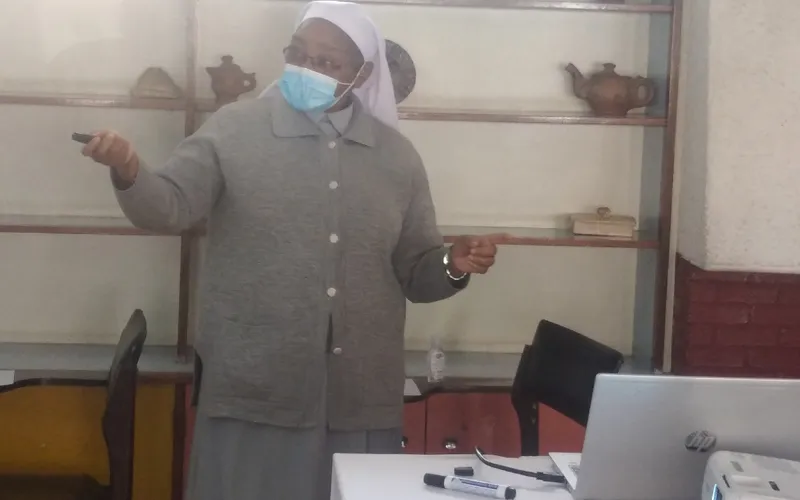
The aim of the training of adolescence and transition, Sr. Regina said, is “to equip the teachers with tools with which to help adolescents to safely transit from childhood to adulthood.”
She said that teachers are the best group to engage in the training as they are the ones who spent most time with the adolescent children in school.
The leadership of AOSK-SLYI gathered various reports of abuse across the various Counties in Kenya ahead of the training that brought on board teachers from both Catholic and non-Catholic schools.
In Kilifi, for instance, Sr. Regina narrated a case involving a 65-year-old man who sexually molested a 10-year-old girl before he was apprehended by police.
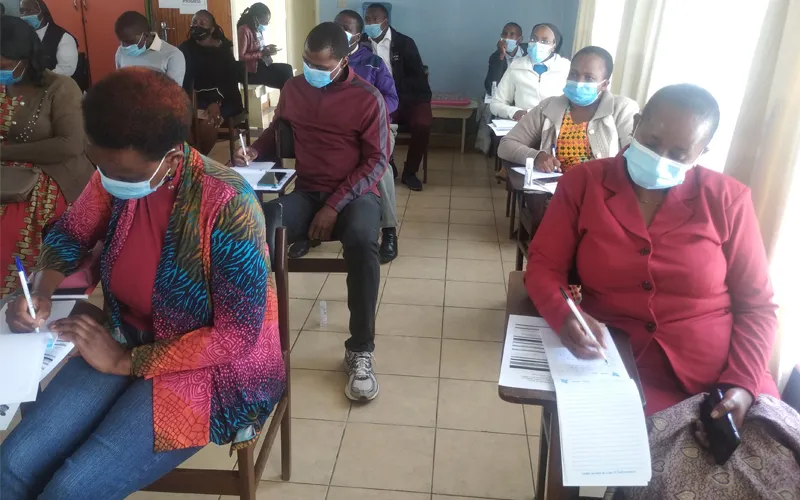
The Kenyan Sister said that the girl’s mother, a single parent, used to sell groundnuts and would leave her daughter in charge of the business.
“The old man lured the girl to his house, promising that he would buy all the groundnuts. But while in the house, he sexually molested her and refused to pay for the groundnuts. He did the same thing a few days later until neighbors found out what was happening and got the man arrested,” Sr. Regina told ACI Africa, adding that the man committed suicide while in the police cell.
The AOSK official expressed regret that not much was done to follow up on the reports of teenage pregnancies in Kenya last year, adding that most cases were settled in families.
“In many cases, it is family members who get the girls pregnant. Such cases are settled within the family set-up and never get to court for proper prosecution,” the member of the Sisters of St. Joseph of Mombasa said.
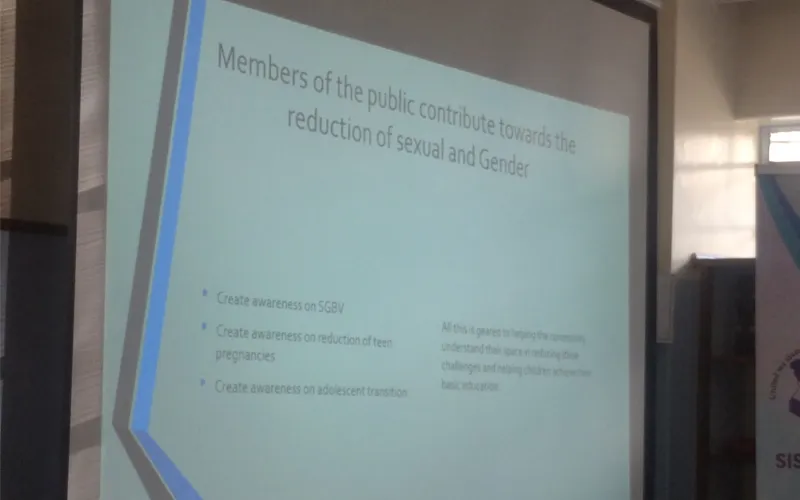
She narrated a case in Mombasa where a father was sexually molesting her primary school children. Their mother, who was fully aware of the incidents, allowed it to happen until the children reported the matter to their school head teacher, a Catholic Nun.
Narrating how the Mombasa incident unfolded, Sr. Regina told ACI Africa, “The Religious Sister alerted the authorities and the father was arrested. But he was released and tried to have the Religious Sister who had him arrested murdered.”
Teachers who spoke to ACI Africa on the sidelines of the ongoing training blamed the many cases of sexual abuse and teenage pregnancies in their schools to poverty and backward cultural practices.
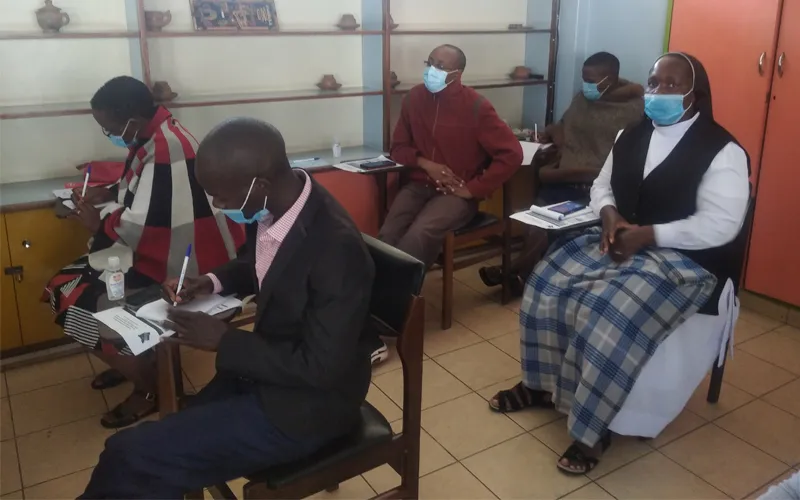
Sr. Pauline Akinyi who teaches at Our Lady of Angels Marinwa Girls Secondary School in Narok said the early pregnancies in schools is prevalent in the region, especially in schools that do not promote empowerment of female students.
“It is possible to find more than three quarters of girls at a school in Narok pregnant. Premarital sex doesn’t get as much as attention in Narok as it does in other places in the country. In fact, it is encouraged. In a way, parents encourage their daughters to have engagements with boys,” Sr. Akinyi told ACI Africa.
The Catholic Nun said that the training in Kenya’s capital Nairobi had impacted her with skills to talk to the girls in her school while waiting for the right time to have children. She said that she had learnt that for such talks to bear fruit, the involvement of parents would be key.
Athuman Sheban, a teacher at Madeteri Primary School in Kilifi said that the training was “a game changer” in his interaction with learners.
“I have acquired skills to handle not just my children through their adolescent stages but also my learners in school,” he said, and added, “I am looking forward to future partnerships with AOSK because I know there is a lot we can do a to improve the welfare of children along the Kenyan coast. It is here that you are sure to find most cases of drug abuse, child abuse and the bad side of the Kenyan tourism sector”
Mr. Sheban continued, “Many challenges in Kilifi stem from the high poverty rates and illiteracy especially among parents. Many parents are not well educated and are therefore not good role models for their children. We hope to break this chain of poverty and illiteracy.”
Paul Kyalo, a teacher at St. Mary’s Girls High School in Narok decried the ease of accessibility of abortion pills in the region, a situation he said was to blame for increased teenage pregnancies and abortions.
“With this training, we hope to get the girls together and let them know that getting pregnant isn’t the end of life. That it is safer to give birth than to procure an abortion,” Mr. Kyalo said.
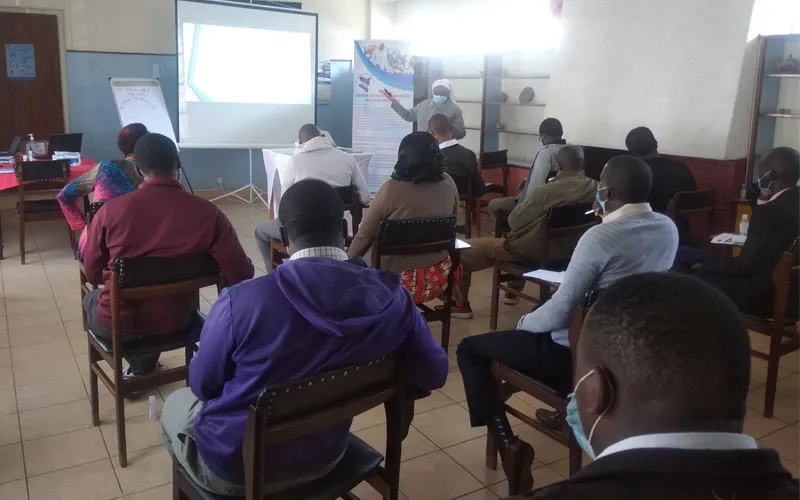
Sr. Regina exudes confidence that at the end of the three-day training that has been scheduled to end Saturday, June 5, the teachers will be equipped with skills to help children to grow to maturity without undergoing any harm.
The AOSK official said that childhood abuse is responsible for many troubled marriages especially when one suffers post-traumatic Stress Disorder (PTSD), a condition she referred to as a “a chronic disorder.”
“Many women stay with wounds that never heal,” the Catholic Nun said, and added, “Some of these wounds date back to when they were children. We therefore need to ensure that children transition to the adolescence stage and adulthood safely.”
